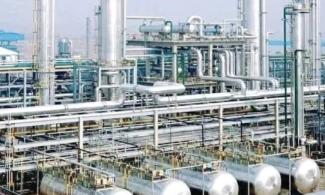
It also declared that the total crude oil and condensate reserves in Nigeria increased to 37.5 billion barrels as of January 1, 2024, with a life index of 68.01 years.
The Nigerian government has finally complied with the demands of domestic crude oil refiners and other operators in the sector, as it declared on Monday that indigenous refineries can now buy crude oil in naira or dollars.
It also declared that the total crude oil and condensate reserves in Nigeria increased to 37.5 billion barrels as of January 1, 2024, with a life index of 68.01 years.
The government disclosed this through the Nigerian Upstream Petroleum Regulatory Commission at a briefing in Abuja, where it unveiled the new template for domestic crude oil supply obligation.
It stated that in compliance with the provisions of Section 109(2) of the Petroleum Industry Act 2021, the NUPRC in a landmark move, had developed a template guiding the activities for Domestic Crude Oil Supply Obligation, PUNCH reports.
“The commission in conjunction with relevant stakeholders from NNPC Upstream Investment Management Services, representatives of Crude Oil/Condensate Producers, Crude Oil Refinery-Owners Association of Nigeria, and Dangote Petroleum Refinery came up with the template for the buy-in of all.
“This is in a bid to foster a seamless implementation of the DCSO and ensure consistent supply of crude oil to domestic refineries,” the Chief Executive, NUPRC, Gbenga Komolafe, told journalists in Abuja.
Responding to a question on the currency of transaction for crude oil purchase, as approved in the new template, Komolafe stated that it would be either in naira or dollar, adding that naira transactions would free the pressure on the country’s foreign exchange rate.
The NUPRC boss also pointed out that the template had become effective because all necessary parties had signed up for it.
He said, “The PIA intends to make the implementation (of crude oil obligation) very easy for the parties, both for the producers and refineries.
So the answer simply is that the currency for the transaction would either be in naira or dollar. That is the simple answer.
“But we all know that if the transaction is carried out in naira, that itself will free the pressure on the exchange rate.
That will help the exchange rate.
So that is the intent and besides, the overall intent of the Petroleum Industry Act is to develop our midstream, which is a very laudable provision of the PIA.”
In the currency of payment section of the new template, it was stated that “the payment shall be in either United States dollar or naira or both.
Where the payment is in both currencies, the payment split shall be as agreed in the SPA between the producer and the refiner.”
Recently, modular refineries in Nigeria had faced the threat of shutting down operations following their inability to access foreign exchange for the purchase of crude oil, a commodity priced in United States dollars.
Nigeria has 25 licenced modular refineries with a combined capacity of producing 200,000 barrels of crude oil daily.
Although not all of the plants are currently operational, the report stated that the functional ones were increasingly finding it difficult to purchase crude due to the foreign exchange crisis in the country.